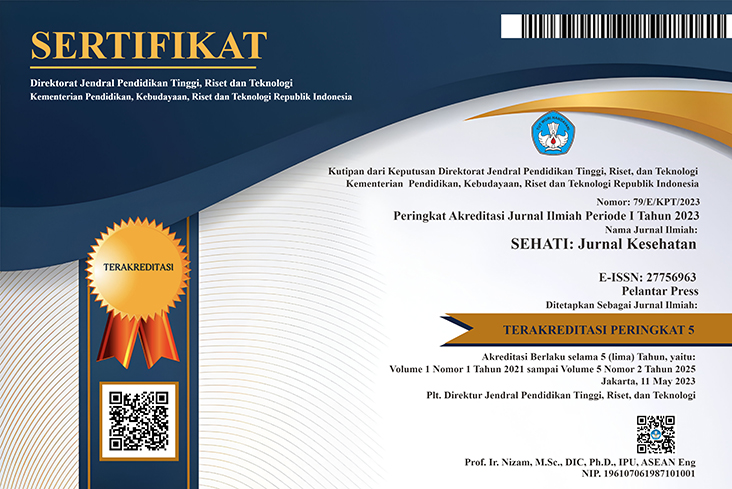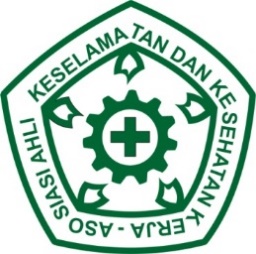Uji Aktivitas Larvasida Minyak Daun Kemangi (Ocinum sanctum L.) Asal Pulau Timor Terhadap Larva Nyamuk Aedes Aegypti
Abstract
The tropical climate in regions like Timor Island can lead to the proliferation of disease-carrying mosquitoes such as Aedes aegypti, which are responsible for diseases like dengue fever, filarial infections, and elephantiasis. Dengue Hemorrhagic Fever (DHF) is a major concern in Indonesia, particularly in East Nusa Tenggara (NTT). This research aimed to assess the effectiveness of basil leaf oil (Ocimum Sanctum L.) as a natural substitute for electric mosquito repellents. The study focused on evaluating its impact on the mortality of Aedes aegypti mosquito larvae and determining the LC50 (Lethal Concentration 50) of basil leaf oil against these larvae. Basil leaves (Ocimum Sanctum L.) were used to extract basil leaf oil through distillation, followed by separating water and oil. The study employed a randomized block design (RAK) to conduct experiments on mosquito larvae. The larvicidal activity of basil leaf oil was tested using 5 different concentrations: 750 ppm, 1000 ppm, 1500 ppm, 2000 ppm, and 5000 ppm. A control group containing 70% alcohol was also included. Ten Aedes aegypti mosquito larvae were transferred from a holding container to a beaker containing 100 mL of distilled water mixed with basil leaf oil at the specified concentrations. The larvae were observed at 5, 10, 15, and 20-minute intervals to track the mortality rate of the larvae over time. The findings of the research demonstrated that basil leaf oil (Ocimum Sanctum L.) exhibited larvicidal activity against Aedes aegypti mosquito larvae. The mortality rate of the larvae increased as the concentration of basil leaf oil increased, with the most significant impact observed at a concentration of 2000 ppm. This study highlights the potential of basil leaf oil as a natural larvicide against Aedes aegypti mosquito larvae, which are responsible for transmitting diseases like dengue fever. The results suggest that basil leaf oil could serve as an alternative or complementary method to conventional mosquito control strategies. Given the importance of controlling mosquito-borne diseases, the use of locally available plant-based substances like basil leaf oil could contribute to public health efforts, particularly in regions like East Nusa Tenggara (NTT). Further research and development in this area could lead to the creation of effective and environmentally friendly mosquito control products.
Keywords
Full Text:
PDFReferences
Alfiah, S., Yanti, A. O., & Sulistyorini, E. (2019). Uji Efikasi Larvisida Dan Pupisida Berbahan Aktif Isotearil Alkohol Etoksilat Terhadap Larva Dan Pupa Aedes Aegypti. Jurnal Kesehatan Masyarakat, 7(2), 144–150.
Aran, L. B., Pitang, Y., & Herminsih, A. (2020). Faktor Lingkungan dan Perilaku dengan Kejadian DBD Di Wilayah Kerja Puskesmas Magepanda Kabupaten Sikka. Jamhesic, 9(Fakultas Kesehatan Universitas Nusa Nipa Maumere), 85–92.
Binsasi, E., Bano, E. N., & Salsinha, C. N. (2021). Analisis Model Penyebaran Penyakit Demam Berdarah Dengue Di Kota Kefamenanu. Statmat : Jurnal Statistika Dan Matematika, 3(1), 1. https://doi.org/10.32493/sm.v3i1.8361.
Fatimura, M., & Fitriiyanti, R. (2021). Variasi Laju Alir Kondensat Terhadap Rendemen Minyak Atsiri Daun Kemangi Menggunakan Metode Distilasi Steam. CHEESA: Chemical Engineering Research Articles, 4(1), 65. https://doi.org/10.25273/cheesa.v4i1.8274.65-74.
Kolo, S. M. ., & Oetpah, F. (2017). Aktivitas Biolarvasida Minyak Sereh Wangi ((Cymbopogon citratus (DC) Stapf.) terhadap Larva Nyamuk Anopheles sp. Jurnal Sains dan Teknologi, 9(2), 76–83.
Kolo, S. M. D., Fallo, G., & Neno, S. D. R. (2018). Aktivitas Biolarvasida Ekstrak Daun Sirsak dan Serai Wangi terhadap Larva Nyamuk Aedes aegypti. Jurnal Saintek Lahan Kering, 1(1), 13–16.
Lailatul, K. L., Kadarohman, A., & Eko, R. (2010). Efektivitas biolarvasida ekstrak etanol limbah penyulingan minyak akar wangi ( Vetiveria zizanoides ) terhadap larva nyamuk Aedes aegypti , Culex sp ., dan Anopheles sundaicus. Jurnal Sains dan Teknologi Kimia, 1(1), 59–65.
Susilawati, S., Salbiah, S., & Fathmawati, F. (2021). Nilai LC50 Cymbopogon nardus L terhadap Musca domestica. Jurnal Kesehatan Lingkungan Indonesia, 20(1), 34–38. https://doi.org/10.14710/jkli.20.1.34-38
DOI: https://doi.org/10.52364/sehati.v3i2.25
Refbacks
- There are currently no refbacks.
Copyright (c) 2023 Pelantar Press

This work is licensed under a Creative Commons Attribution-ShareAlike 4.0 International License.

Ciptaan disebarluaskan di bawah Lisensi Creative Commons Atribusi-NonKomersial 4.0 Internasional.




